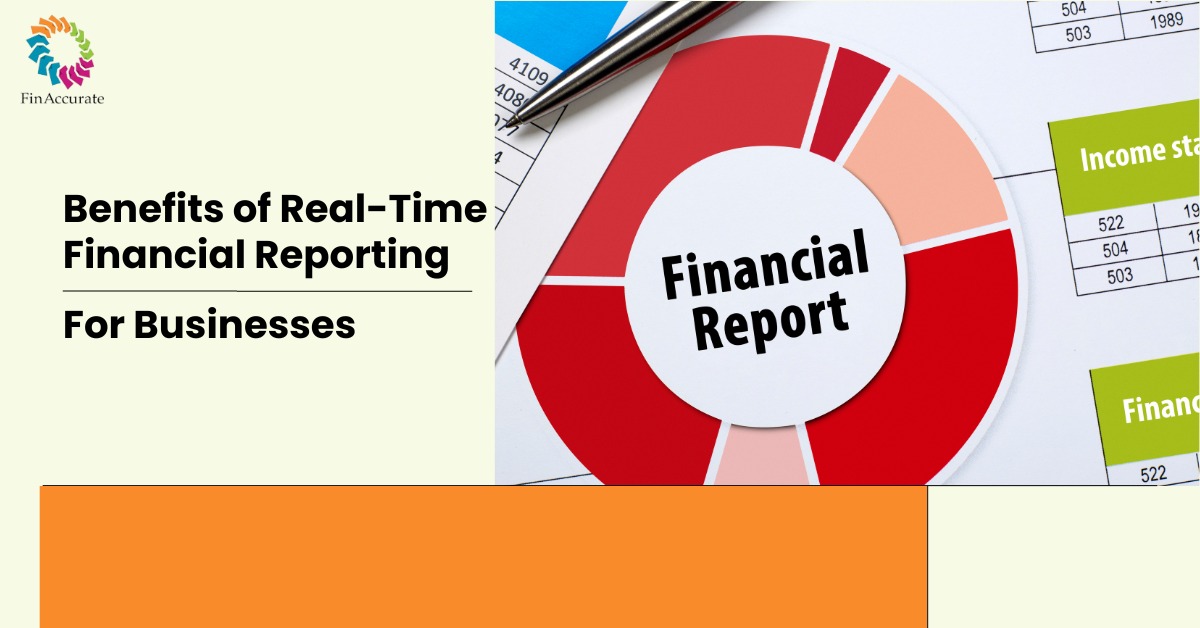As a business owner, it is important to keep track of your financial performance and stay informed about the financial health of your business.
Real-time financial reporting is an invaluable tool that can help you stay on top of your finances and make informed decisions.
This type of reporting provides up-to-date, comprehensive information on your financial performance, giving you a clear picture of how your business is doing.
In this blog post, we’ll discuss the benefits of real-time financial reporting and how it can help you manage your business finances.
Definition of Real-Time Financial Reporting
Real-time reporting is a type of business intelligence that involves gathering the most up-to-date information and sending it to users as it happens. Information is given in its most up-to-date form so that managers can make quick decisions when they are pressed for time.
Benefits of Real-Time Financial Reporting
Real-time financial reporting offers tremendous benefits for business owners. By providing immediate insight into the financial health of a business, owners can make timely, informed decisions that can be the difference between success and failure.
Here are some of the ways that your organization can benefit from real-time reporting.
-
Boost organizational transparency
Open communication and transparency among team members are essential for keeping everyone in alignment.
Real-time reporting helps optimize workflow as it allows departments to access and share data in real-time, minimizing delays.
Furthermore, it helps reduce the risk of fraud as it eliminates windows of opportunity for dishonest team members to alter information.
Audit controls can also be implemented for added security. With real-time reporting, errors, and fraud can be detected quickly.
-
Reduce Manual Labour
Automating data collection with real-time reporting is a cost-effective way to save time and money on tedious manual labour.
Rather than spending hours gathering and organizing information, it’s possible to review information quickly and accurately without risking errors in reports.
This allows for a more regular review of data and a significant reduction in the time and effort needed to obtain and analyze it.
-
Examine status and performance
Do you have an accurate understanding of your business’s current health? With the right real-time reporting system, you can gain insight into vital details such as team performance, financial standing, customer satisfaction, and more.
This data is essential for gauging your business’s success and progress.
Additionally, you can compare this data to historical information and fiscal goals to gain a better perspective on your company’s overall progress.
-
Improving Business Goals
To set achievable goals, you first need to know where you’re starting from and plot a course. Utilizing real-time reporting can give you the clarity and insight needed to identify the best path forward.
With access to reliable data, you can create a set of goals that will get you to your ultimate target, and adjust them as necessary by regularly evaluating real-time information and tracking your progress.
Real-time data allows you to take immediate action when issues arise, helping you stay on track toward your ultimate goal.
-
Make critical decisions with a strategy
By analyzing real-time data, businesses can gain valuable insights into where their company is heading. These reports provide an overall picture that can help inform decisions, both big and small.
Rather than relying on guesswork or basing decisions on current circumstances, real-time data gives business owners reliable information to make an informed, forward-thinking strategy.
How to Implement Real-Time Financial Reporting
Implementing real-time financial reporting requires a combination of technical and operational considerations. Here are some steps to help you get started:
- Choose a real-time reporting system: There are various reporting systems available in the market that provide real-time financial data. Choose the system that suits your business needs the most.
- Collect data from various sources: Collecting data from various sources such as point-of-sale systems, financial institutions, and accounting software is essential to ensure that the data provided is accurate and up-to-date.
- Use cloud-based systems: To ensure real-time financial reporting, it is recommended to use cloud-based systems as they offer better scalability and are accessible from anywhere with an internet connection.
- Implement automation: Automation of financial reporting tasks helps save time and reduce the risk of errors. Automation can be done through the use of APIs, integrations, and other tools.
- Monitor the system: Real-time financial reporting requires constant monitoring to ensure that the data provided is accurate and up-to-date. Make sure that the system is running smoothly and that there are no technical glitches.
- Provide training: Provide training to your team members to ensure that they understand how the real-time reporting system works and how to use it to make informed decisions.
Ensure data security: It is essential to ensure that the real-time financial reporting system is secure and the data is protected. This can be achieved through the use of secure protocols, encryption, and access controls.
By following these steps, you can implement real-time financial reporting in your organization and gain insights into the financial performance of your business as it happens.
Conclusion
Real-time financial reporting is a valuable tool that all business owners should take advantage of.
It offers immediate, accurate information that can help business owners make timely decisions, streamline operations, and maximize their return on investments.
Not only does real-time financial reporting provide better visibility into the financial health of your business, but it also helps to identify areas of improvement and savings opportunities.
By utilizing real-time financial reporting, business owners can gain greater insight into their finances and better manage their businesses for long-term success.
JAY’s Choice:-
- Bookkeepers for small business
- 3 Ways to grow your bookkeeping business
- What are the challenges of the Budget session and solutions to improve it?
- How to identify and avoid problems in Bookkeeping
- 10 Types of Cloud-Based Accounting Services
- 10 Benefits of Outsourced Bookkeeping
- How to hire a top bookkeeper: a comprehensive guide
- 5-Ways Hiring A Bookkeeper Can Make Your Business More Profitable
- Bookkeeping For Non-profits
- Accounting Year-End Checklist for Your Small Business









 Ensure data security: It is essential to ensure that the real-time financial reporting system is secure and the data is protected. This can be achieved through the use of secure protocols, encryption, and access controls.
Ensure data security: It is essential to ensure that the real-time financial reporting system is secure and the data is protected. This can be achieved through the use of secure protocols, encryption, and access controls.



